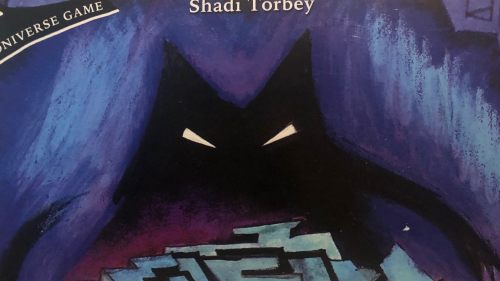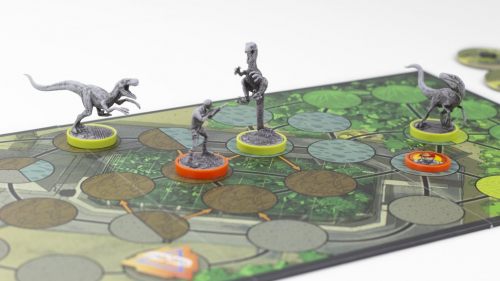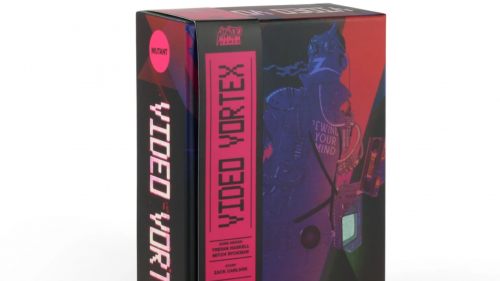Board Game Review: FOG OF LOVE
They make board games for everyone, but it’s easy to look at a shelf of them and just assume they’re mostly focused on conquest and war. Or making money. Or simply being better at something than everyone else. Take a beautiful and totally non-violent game like Wingspan. You still compete with others to have best birds… number of feathers… you know what, I forget how you win in Wingspan. Regardless, it all comes down to winners and losers.
Enough games are like this that when one manages to kick the trend, the novelty is noticeable. Refreshing, even. When a game is truly original from the ground up, veteran gamers no longer have an edge on the learning curve. By its nature, this level of originality is rare, but games like this do exist. Jacob Jaskov’s Fog of Love is one of them.
Fog of Love is a two-player game in which the entire concept of winning and losing is moot. As you might have ascertained already, the game takes through through the ups and downs of a romantic relationship. (The packaging and blue & pink color-coding appears themed around heterosexual couplings but that doesn’t necessarily have to be the case and male-male, female-female expansions assumably strive to make the game even less cis-centric.) You may think a successful relationship constitutes a win while a breakup means you and your partner lost. As with real life, however, Fog of Love is far more complicated than that.
First off, when you and your partner sit down for your first play through of this game, you will experience and absolutely outstanding tutorial that gets you right into the thick of it with no confusion. Together, you will go through an actual game with guidance from cards that magically turn up when the time comes for a new concept to arise. Fog of Love requires no work from you ahead of time. No videos or reviews. You can crack it open, follow the set up instructions and get to playing. It’s a thing of beauty.
The Fog of Love board, which like everything here is well-made and elegant, revolves around six personality dimensions - discipline, curiosity, extroversion, sensitivity, gentleness and sincerity - with arrows indicating a high or low amount of each trait (low isn't always a bad thing). As you begin, you will pick three traits that define who you are, three traits you give to your partner, and an occupation. The job and traits given to you by your partner each have trait indications that will start you on the board. Maybe your partner likes your crooked teeth; that is a negative for discipline. A seducing scent is a plus one for extroversion.

Meanwhile, the traits you have chosen for yourself have a threshold of trait markers you need to achieve by game’s end in order to stay true to yourself. This and other actions in the game affect your character’s happiness. Which brings us back to the win-lose of it all. If your relationship remains healthy by the end of the game but your character is sad, did you really win? Sounds to me like someone needs to get their ass dumped.
Gameplay comes from your hand of cards. There are exceptions (secrets are particularly fun) but most are scenes, or scenarios you read out loud and then react to from a number of choices, each having some effect on your personality dimensions.
In terms of a role-play mechanic mirroring real life, I found all this quite amazing. We all want to do well in a game. Fog of Love forces you to express your character’s personality in these scenes, even if you as a player know you are doing the wrong thing. You can’t help who you are! Sure, you can fake it, but that will not lead to happiness. If one of your traits is selfishness, for instance, by god you are going to be a selfish dick in this game, at least until you have enough points on that trait to ensure its game-end bonus. You can be more of a sweetheart after that.
There is typically a happiness reward if you and your partner pick the same scene outcome. So maybe you have an idea who your partner is and play toward that happiness instead of pleasing yourself. There has to be a balance, and the harder that balance is to achieve the more you two probably aren’t a good match after all.

The scenarios themselves are for you to discover. They run the gamut from buying flowers to dealing with inlaws to proposing to revealing that you cheated. The base game comes with four packs of cards you must open individually. But don’t worry, this isn’t some legacy game where opening them means they can’t ever be replayed. The cards will be a bit less surprising, that’s all. There are expansions, as well, if you do find yourself getting bored with the scenarios. Since you are a new couple each time you play, I feel like the base set has a ton of replays to offer.
In fact, I’ve played this game quite a bit and still feel like I’m only scratching its surface. Part of that is only playing it with only one other person so far. Fog of Love is one where maybe you should be careful who you play with. I honestly recommend playing it with friends over lovers. Things get a little dramatic.
One interesting thing I noticed is the game really is so much better when you and your co-player's characters are a good match. You laugh and cheer more and enjoy good vibes between you overall. If you are stuck as an asshole, or if your character is nice but nevertheless doesn’t work well with your partner, the game is a totally different kind of experience. Still fun and interesting but also a bit dark. This struck me as a brilliant expression of what the game intends to mirror in real life. It’s not fun to be in a bad relationship, not getting what you want or getting it (demanding it, even) at the cost of constantly letting someone down. Sometime you play this game together; sometimes you play this game apart. It is a very strange beast but one that deeply impresses me.



